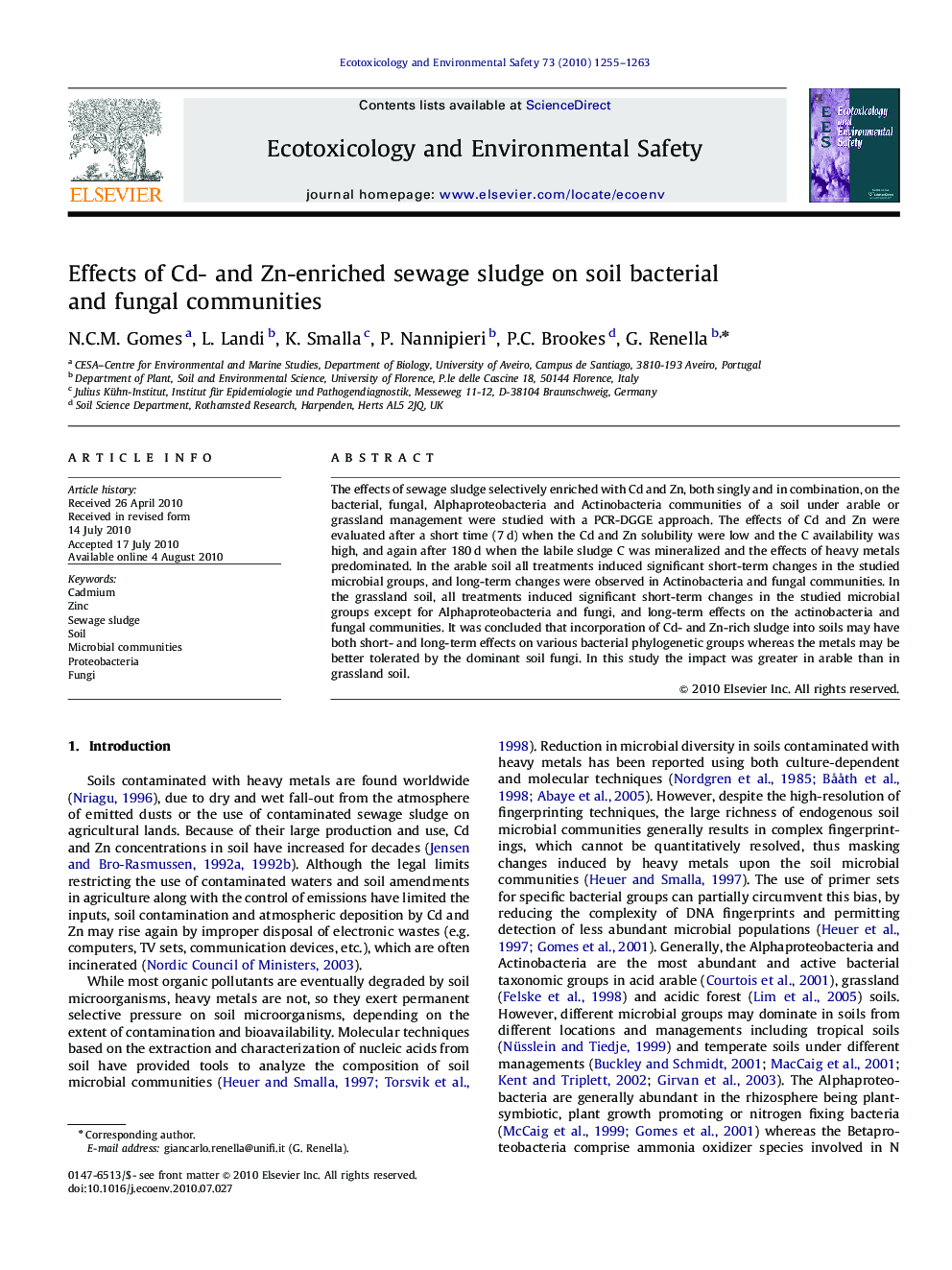| Article ID | Journal | Published Year | Pages | File Type |
|---|---|---|---|---|
| 4421144 | Ecotoxicology and Environmental Safety | 2010 | 9 Pages |
The effects of sewage sludge selectively enriched with Cd and Zn, both singly and in combination, on the bacterial, fungal, Alphaproteobacteria and Actinobacteria communities of a soil under arable or grassland management were studied with a PCR-DGGE approach. The effects of Cd and Zn were evaluated after a short time (7 d) when the Cd and Zn solubility were low and the C availability was high, and again after 180 d when the labile sludge C was mineralized and the effects of heavy metals predominated. In the arable soil all treatments induced significant short-term changes in the studied microbial groups, and long-term changes were observed in Actinobacteria and fungal communities. In the grassland soil, all treatments induced significant short-term changes in the studied microbial groups except for Alphaproteobacteria and fungi, and long-term effects on the actinobacteria and fungal communities. It was concluded that incorporation of Cd- and Zn-rich sludge into soils may have both short- and long-term effects on various bacterial phylogenetic groups whereas the metals may be better tolerated by the dominant soil fungi. In this study the impact was greater in arable than in grassland soil.
